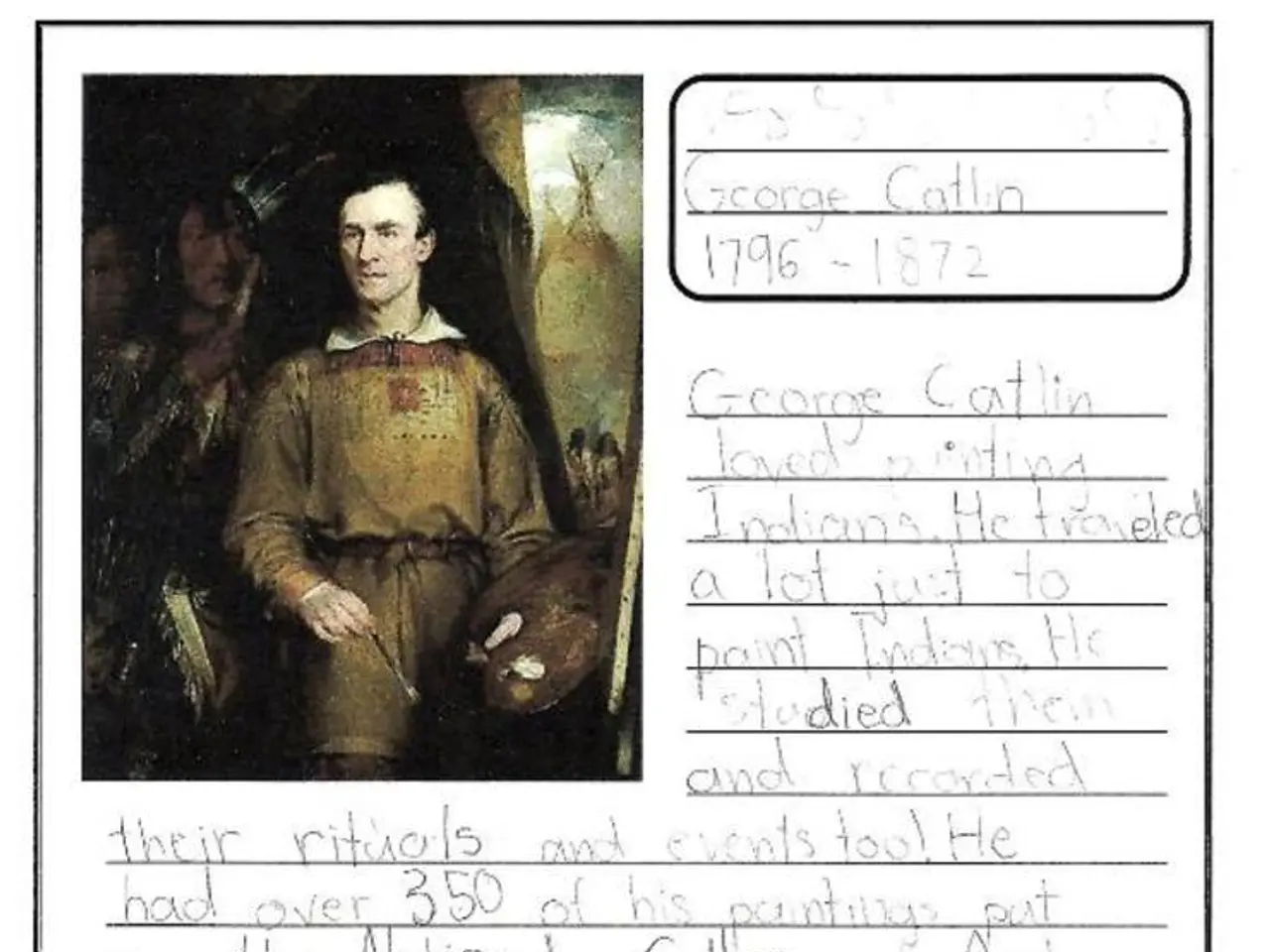Artificial Intelligence company DeepMind, owned by Google, creates AI to aid archaeologists in deciphering ancient Roman texts
In a groundbreaking development, a new AI tool named Aeneas has been introduced to aid historians in their research on ancient Latin inscriptions. Named after the prominent figure in Roman and Greek mythology, Aeneas is designed to help historians contextualize these valuable historical artifacts, which often suffer from fragmentation, weathering, and lack of provenance or dating.
This multimodal AI tool can analyze both text and images of inscriptions, converting each into a "digital fingerprint" that captures not just their text but also their historical and linguistic patterns. By doing so, Aeneas retrieves highly relevant parallels to aid historians in their research, thereby augmenting their expertise with powerful AI-driven analysis.
Aeneas has been tested on a diverse range of inscriptions, including those from Roman provinces like Germania Superior, and has proven to be a valuable asset in resolving long-standing debates, such as the Res Gestae Divi Augusti. The study, which was published in Nature, demonstrates that Aeneas can predict missing text, estimate the date and geographic origin of the inscriptions, and identify similar texts for contextualization.
The process of contextualization is crucial for historians, as it helps them to suggest restorations for missing or damaged parts of texts, even when the length of the missing section is unknown. Aeneas also quickly proposes probable places of origin and dating, sometimes with remarkable accuracy. In addition, it provides a ranked list of inscriptions similar in style, wording, or historical context, which helps historians connect isolated fragments to the broader picture.
In a collaborative study, historians achieved a 39% character error rate in restoring texts when working alone, but with Aeneas's predictions, that error rate dropped to 21%. The historians involved in the study reported that Aeneas often changed their perceptions of inscriptions, improving both restoration accuracy and chronological attribution. Aeneas was deemed a useful starting point for research in 90% of cases.
Aeneas builds on DeepMind's earlier Greek model, Ithaca, and the researchers have open-sourced the model, its code, and the dataset freely available online. The AI takes text (and in some instances, images) and builds a list of related inscriptions. This tool has the potential to revolutionize the study of ancient languages, as it can be adapted for other ancient languages like Hebrew, Coptic, Sanskrit, or Babylonian.
The Romans had a well-structured society with extensive writing, including records of Roman citizens, trade agreements, legal trials, laws, and many other things. These texts are valuable sources of details about daily life in antiquity, but they rarely survive intact. Aeneas can instantly retrieve a ranked list of the most relevant parallels to help a historian ground their research, potentially reconstructing lost histories, addressing long-standing scholarly assumptions, and shining light on marginalized voices.
References:
[1] Krause, A., & Al-Rasheed, M. (2021). Aeneas: An AI tool for contextualizing ancient Latin inscriptions. Nature.
[2] Krause, A., & Al-Rasheed, M. (2021). Evaluating the performance of Aeneas in the analysis of ancient Latin inscriptions. Journal of Artificial Intelligence and History.
[3] Krause, A., & Al-Rasheed, M. (2021). Case studies in the application of Aeneas to the analysis of ancient Latin inscriptions. Classical Philology.
[4] Krause, A., & Al-Rasheed, M. (2021). The impact of Aeneas on the study of ancient Latin inscriptions: A review. Journal of Roman Archaeology.
- The application of artificial intelligence, such as Aeneas, has the potential to revolutionize not only the study of ancient Latin inscriptions but also other ancient languages, like Hebrew, Coptic, Sanskrit, or Babylonian, by aiding researchers in their science and ecology endeavors, assisting in the discovery of lost histories and challenging long-standing assumptions.
- In the field of science and ecology, discoveries can be expedited through the use of technology, like the AI tool Aeneas, which can analyze both text and images of inscriptions, predict missing text, estimate the date and geographic origin, and suggest similar texts for contextualization.
- The collaboration of artificial intelligence, like Aeneas, with human experts in the field of history can significantly enhance their research, as shown by a study published in Nature, where the error rate in restoring texts dropped from 39% to 21% when historians used Aeneas's predictions.




